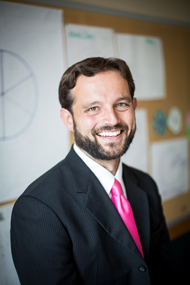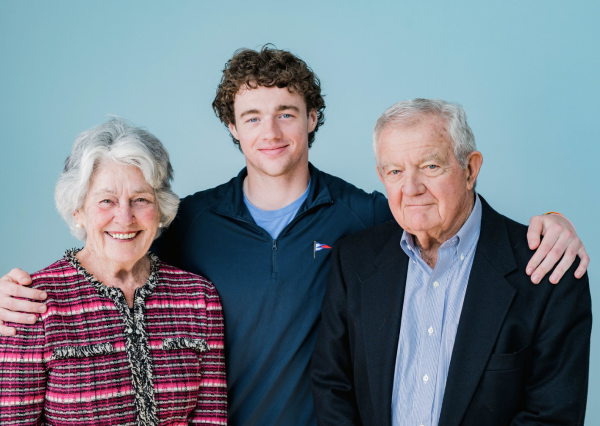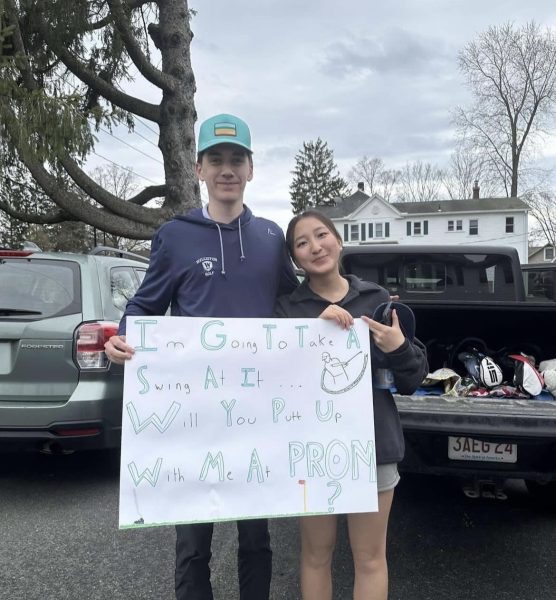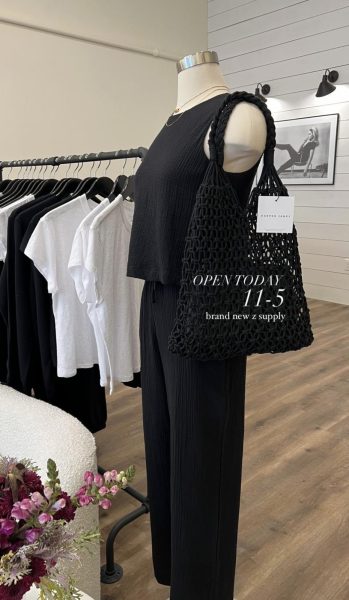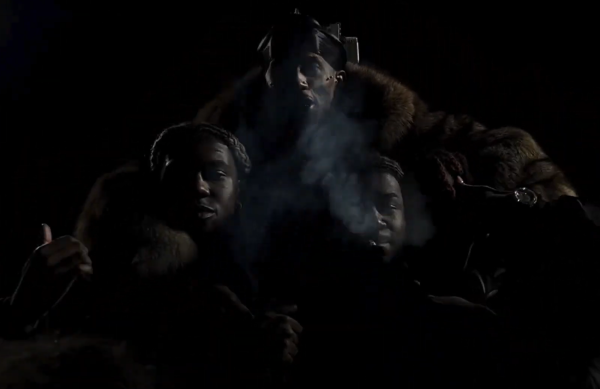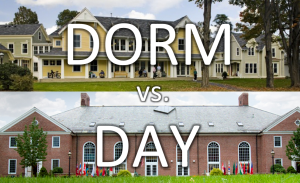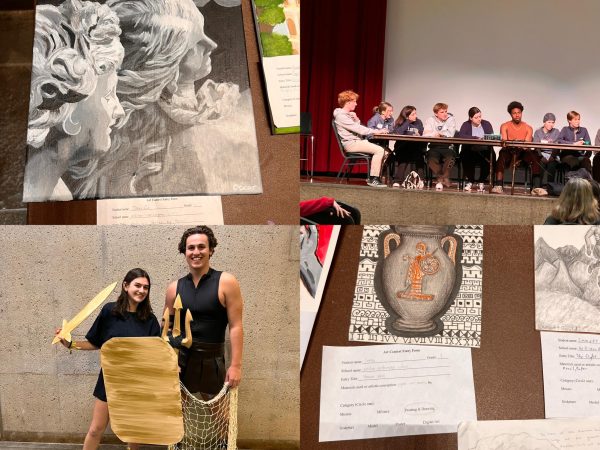The Willistonian Interview: Math Department Head, Josh Seamon
The Willistonian Interview is a column written by Campus News Editor, Nate Gordon, where he interviews different faculty, staff, and students on campus. Mr. Seamon is in his first year as a member of the Williston faculty, but has already been appointed Head of the Math department.
Nate Gordon: What made you want to become a math teacher?
Josh Seamon: I always found math to be incredibly rewarding-the overcoming of really big challenges and finding those epiphanies and moments of clarity. It was kind of a rewarding field to operate in that offered interesting challenges that appealed to my attraction to logic and to understanding the universe.
NG: What brought you to Williston?
JS: Well, for the past eleven years I have working up in Vermont, but I grew up in Western Massachusetts. I loved what I was doing up in Vermont, but I wanted to be closer to my family. I was looking for a new challenge and the perfect job opened up at the perfect school at the perfect location, so here I am!
NG: What are the goals of the math department at Williston?
JS: The goals of the math department are for us to get kids excited about math, to get them excited about the beauty of math, to get them excited about the practicality of math. To help them be prepared for, as well as they possibly can be, for everywhere they are going to apply math-directly or indirectly. Math teaches you how to think, so doing that in such a way where you can derive as much fun is a primary goal of the math department.
NG: In what ways do you think the Williston math department gets students excited about math?
JS: I think one way is that everyone who works in the department is themselves really excited about math. You walk into any class and you’ll see people who love what they do and are excited about the topic. That’s not to say that everybody will love math, but I think it’s certainly possible to be excited about a class, [while not] totally falling in love with it.
NG: Why do you think many students have an aversion to math?
JS: I think there are many different reasons. But I think the largest reason is also kind of the easiest to conquer, which is that it’s too culturally acceptable to say, “I’m not good at math and I don’t like math.” It’s just too acceptable to say that. It can be challenging studying something that doesn’t appear to have an immediate practical application. As humans, we expect there to be an immediate “Oh I can use this right here right now.” The fact of the matter is if we as humans only spent time on things we thought had immediate practical applications, we would have never advanced as a human species.
NG: So you think it’s more of something people just say [that they don’t like math] because they hear their friends saying it?
JS: I think it comes from friends, I think it comes from parents, I think it comes from what they see just in their exposure to American culture. I’ll be American-centric because I can’t really speak for living in other countries, but I have had the experience of traveling to schools in other countries. In my own personal experience, there is a higher value placed on math [in those countries]. Not just on math aptitude, but valuing math. You don’t have to be really good at something to see value in it.
NG: How do you see the new tablets Williston is using affecting the way students learn math?
JS: I think the tablets have incredible potential to make it easier for students to deeply learn mathematics. Having this device and the same device in every faculty member’s hand and in every student’s hand creates many opportunities to do many things you could not do before. I am now able to, if someone emailed me last night and says they are having trouble with the homework, it doesn’t matter where they metaphysically are, I can literally write down [in their shared online notebook] some thoughts in real time that they can then look at immediately.
NG: Can you please tell me a little bit about your passion for ultimate frisbee?
JS: I was lucky enough to grow up in Amherst, Ma. where ultimate was just another varsity sport. I converted from baseball, I loved pitching. We won the first high school national title in ’98, which was a wonderful experience. I then went off to college and played. But then went I got to northern Vermont, I was in a position where there weren’t teams close enough to me to really offer the kind of team environment I wanted to play on-I couldn’t drive three hours to Boston four times a week when I was teaching. So I started coaching, I do miss playing, but nothing really compares to coaching-I’ve fallen in love with coaching ultimate. I believe ultimate offers something for everybody. It’s in many ways just like every other sport out there and a few ways it’s a little different. There’s no third-party refereeing, but that means instead of having multiple third-party refs, there’s fourteen people on the field who make calls, which is a wonderful thing to see. I’m a big fan of that!
One of the things I’ve been doing the past couple summers is going out to Israel to work at program called Ultimate Peace Camp. We bring in about a hundred Jewish-Israeli teenagers and Palestinian teenagers and we use ultimate as a way for these populations, which never truly interact very frequently, to get to know each other. It’s a simple mechanism that has a wonderful outcome.
NG: What do you like best about Williston so far?
JS: Everybody has been so ridiculously welcoming. It’s only two weeks in and it feels like I’ve been here much longer for two weeks—in a really good way.
NG: Is there anything that has surprised you about Williston so far?
JS: I think the biggest surprise is that there hasn’t been any huge surprises.



